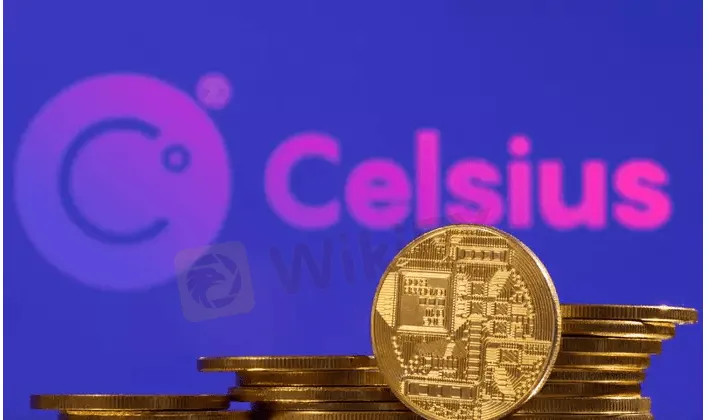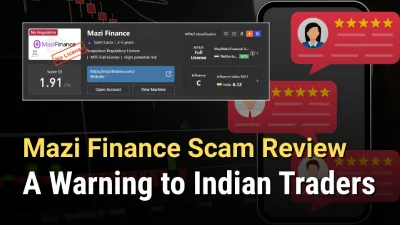Mazi Finance Scam Exposure: A Warning to Indian Traders
Latest India Mazi Finance scam: Failed XAUUSD execution despite margin, costing $675—fake “insufficient balance” excuse. Protect funds, read the full report now!
简体中文
繁體中文
English
Pусский
日本語
ภาษาไทย
Tiếng Việt
Bahasa Indonesia
Español
हिन्दी
Filippiiniläinen
Français
Deutsch
Português
Türkçe
한국어
العربية
Abstract:Customers of crypto lender Celsius face a long and anxious wait to know how, when and even if they will get their money back after the company filed for bankruptcy, becoming one of the biggest victims of the collapse in crypto markets this year.

Citing extreme market conditions, Celsius froze withdrawals in June in a move that reverberated through the crypto world and beyond, spurring a $300 billion selloff in digital assets and leaving legions of retail investors cut off from their savings.
Celsius Network, which is based in the U.S. state of New Jersey, revealed a gaping $1.2 billion hole in its balance sheet when it filed for Chapter 11 bankruptcy in New York this week.
Customers should now buckle up for a bumpy ride as they await some clarity over the fate of their money, six lawyers specialising in bankruptcies, restructuring or crypto told Reuters.
With scant precedent for bankruptcies at large crypto companies, the prospect of multiple lawsuits against Celsius, as well as the high complexity of any restructuring, the Chapter 11 process is likely to be slow, the lawyers said.
“This could last for years,” said Daniel Gwen at Ropes & Grey law firm in New York. “It‘s highly likely there’s going to be a lot of litigation.”
Celsius did not reply to requests for comment.
Crypto lenders boomed during the pandemic, attracting retail customers with double-digit rates rarely offered by traditional banks, in return for their crypto asset deposits.
On the flip side, institutional investors such as hedge funds paid lenders higher rates to borrow the coins, leaving firms such as Celsius to profit from the difference. Lenders also invested in riskier, so-called decentralised finance markets.
‘THREE-DIMENSIONAL CHESS’
When crypto markets slumped this year as surging inflation rates sparked a flight to safer assets and two major tokens – terraUSD and luna – failed, the riskier bets by lenders on wholesale crypto markets turned soured.
U.S. crypto lender Voyager Digital filed for bankruptcy this month too after suspending withdrawals and deposits, while smaller Singapore lender Vauld and Hong Kong-based Babel Finance have also frozen withdrawals.
Chapter 11 bankruptcies allow companies to prepare turnaround plans while remaining operational.
While major crypto firms have failed before, most notably the Japanese exchange Mt. Gox in 2014, there is little precedent for the treatment of customers at stricken crypto lenders, the lawyers said.
“It is, at best, unknown how the bankruptcy code and bankruptcy courts will be treating cryptocurrency companies,” said James Van Horn, partner at Barnes & Thornburg in Washington.
Creditor committees formed as part of bankruptcy proceedings will likely seek to shape any reorganisation plan decided by Celsius, three lawyers said. Creditors can also make claims against the company even as it goes through the process.
“Its probably going to take, given the complexity, six months, at a minimum just to develop a plan to come out of bankruptcy,” said Stephen Gannon, partner at Davis Wright Tremaine. “This is going to be three-dimensional chess.”
In general, Chapter 11 bankruptcies prioritise repayments to secured creditors, then unsecured creditors, and then equity holders.
“(Unsecured creditors) have no earmarked rights to any funds or anything, everything‘s been commingled,” Van Horn said. “Sometimes it’s a very small amount that unsecured creditors get.”
‘LAST ON THE LIST’
Celsius said in court filings this week that it had more than 100,000 creditors.
As of July 13, it had some 23,000 outstanding loans to retail borrowers worth $411 million, backed by crypto collateral worth $766 million, it said in a filing on Thursday.
While Celsius listed its largest 50 creditors, it made no mention of the order in which they would be repaid and many of its 1.7 million clients are individual investors.
One of them is Martin Jabou, 27, who lives in Hamilton, Canada. He put crypto assets worth about $45,000 into Celsius, though they are now worth less than half of that.
“I think we‘re going to be last on the list,” he said of any repayments from the bankruptcy. “I don’t know how to afford rent or car payments, especially with the other debts that I have.”
Crypto lenders such as Celsius acted in a similar way to banks. But unlike for mainstream lenders, there is no safety net for people such as Jabou when crypto platforms fail.
At U.S. banks, deposits of up to $250,000 are insured by a federal body. Broker-dealer clients are insured for up to $500,000 in securities and cash by a separate body.
Similar deposit protection schemes exist in the European Union and Britain.
While it is not clear how Celsius will classify its clients, it did warn customers it may treat them as unsecured creditors – and customers are likely to litigate over such a status, said Max Dilendorf, a lawyer in New York specialising in crypto.
“It will be a one-of-a-kind case to see why customers should be classified as unsecured creditors,” he said.

Disclaimer:
The views in this article only represent the author's personal views, and do not constitute investment advice on this platform. This platform does not guarantee the accuracy, completeness and timeliness of the information in the article, and will not be liable for any loss caused by the use of or reliance on the information in the article.

Latest India Mazi Finance scam: Failed XAUUSD execution despite margin, costing $675—fake “insufficient balance” excuse. Protect funds, read the full report now!

Does Pemaxx prevent you from withdrawing funds once you make profits? Has the Mauritius-based forex broker disabled your trading account upon your withdrawal request? Do you fail to withdraw funds despite meeting the trading lot requirements? These scam-like trading activities have allegedly become a part of the broker’s operation, as many traders have complained about them online. In this Pemaxx review article, we have highlighted their comments against the forex broker. Keep reading!

Mastering forex broker regulation ensures you avoid pitfalls and select trustworthy platforms. We’ll cover regulator types, license details, the distinction between licensed and registered, and practical steps.

Did Fortune Prime Global deduct all your profits by accusing you of market manipulation? Are you struggling to access withdrawals for months? Has the forex broker disabled your forex trading account upon the withdrawal application? Does the broker stipulate tax payments as a condition for fund withdrawals? You are not alone! In this Fortune Prime Global review article, we have highlighted these complaints. Read on!
